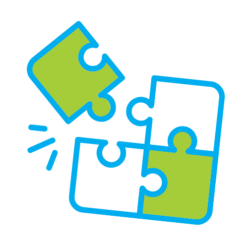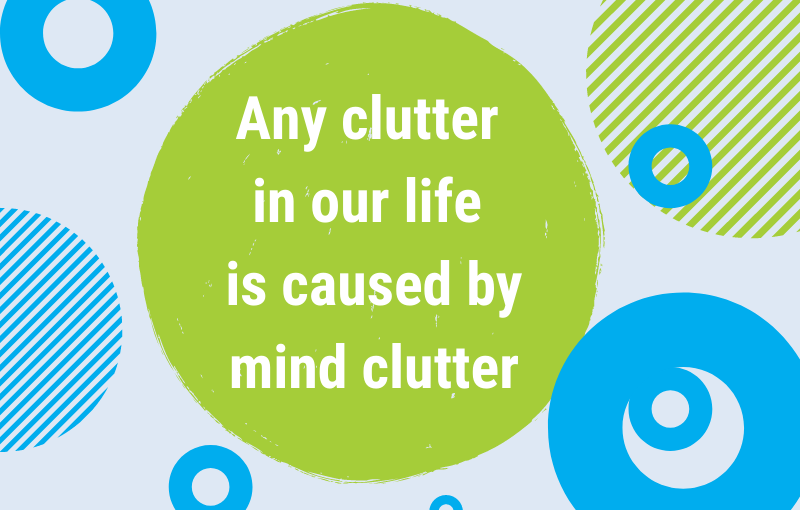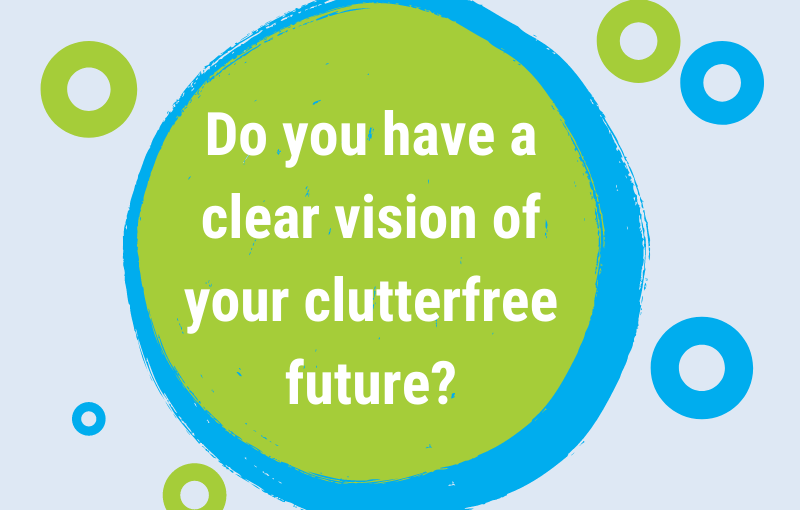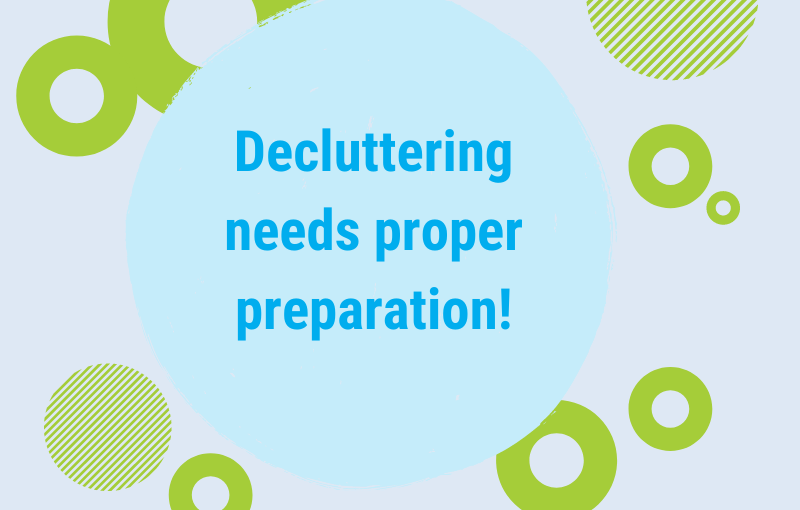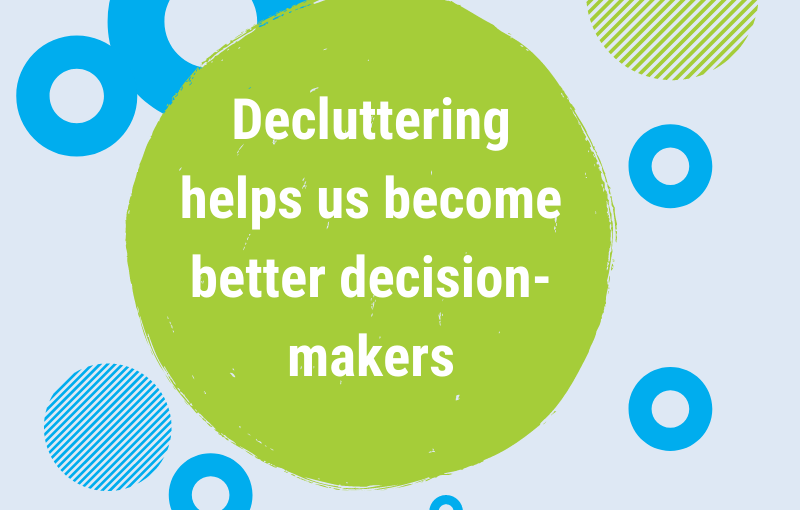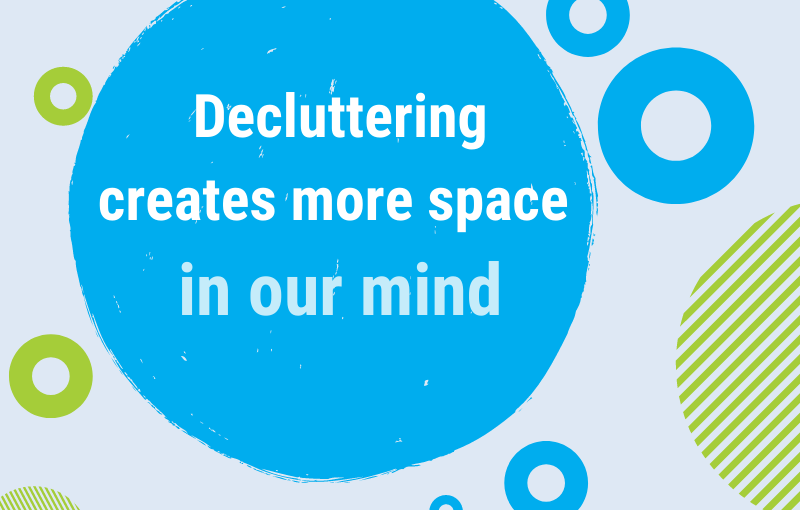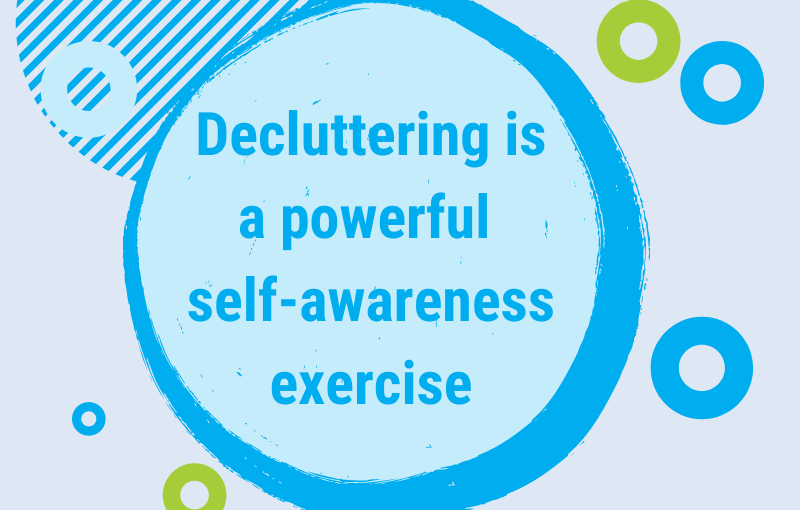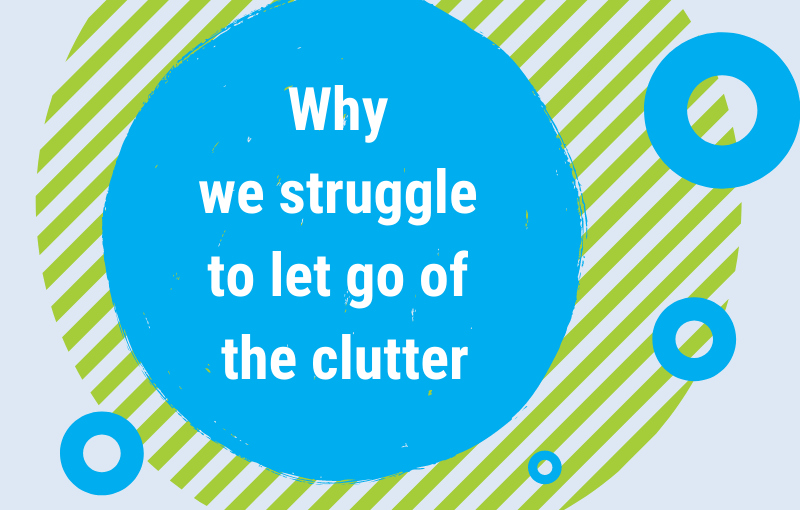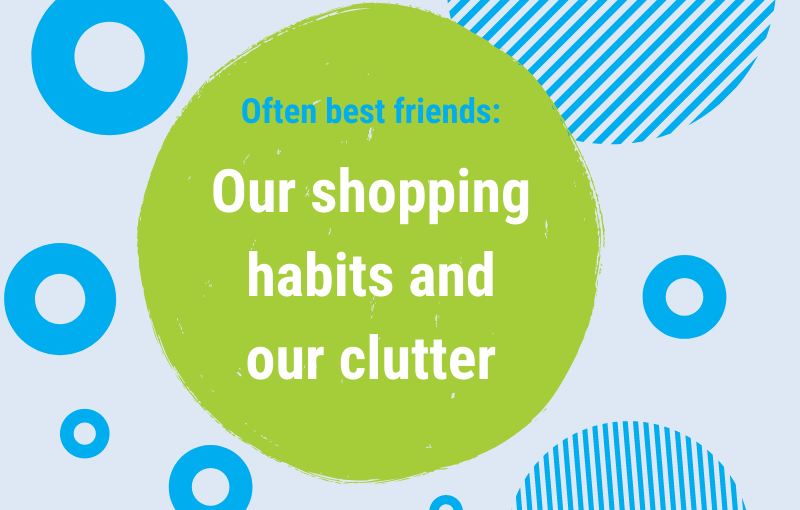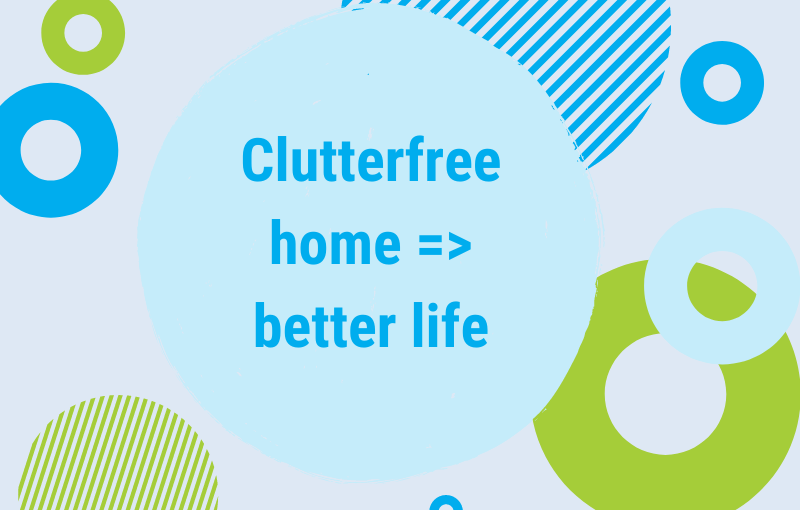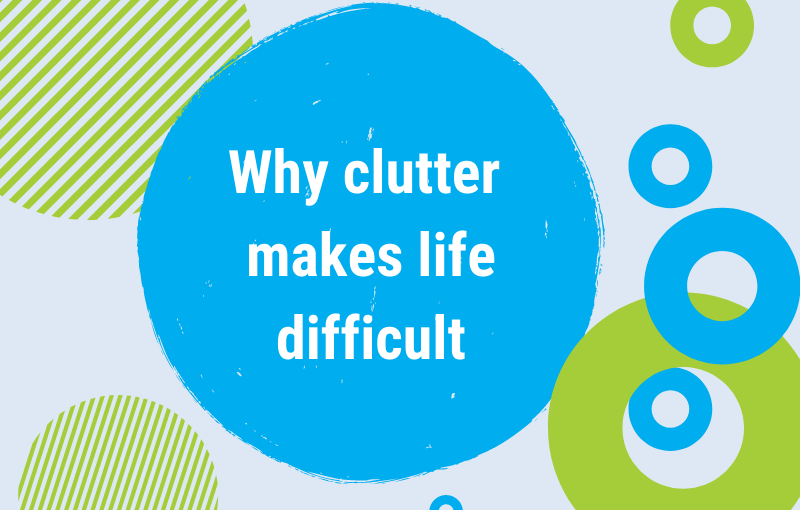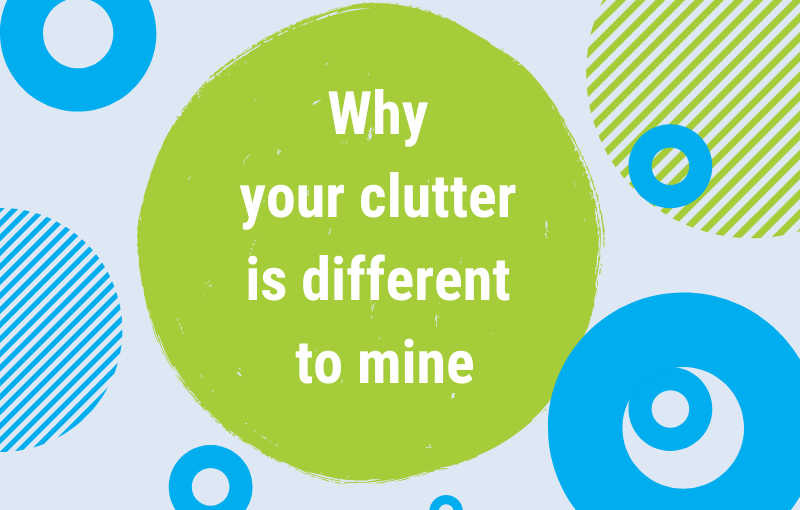Short Intro
The ‘Clutter Series’
The main purpose of the ‘Clutter Series’ is to help us understand the clutter in our homes better.
We learn what clutter is and why we accumulate it in our homes, why the awareness of our values and our ability to make decisions are so important, and how we can improve our decluttering skills.
The ‘Mind-Decluttering Series’
The most damaging category of clutter is the clutter in our mind.
This type of clutter – all the self-limiting thoughts and unsupportive beliefs – is so powerful because the mind-clutter causes all the other types of clutter in our life
The ‘Mind-Decluttering Series’ is all about how we can get the mind-clutter sorted out.
The most important insights of the ‘Clutter Series’:
Part 1, What is clutter? Why is your clutter different to mine?
Clutter is anything that no longer serves us. Thus any decluttering decision is absolutely subjective.
Our personal situation and our individual values, beliefs and perceptions determine what is clutter – it can mean something different to each of us.
If you decide that something you own is clutter, it’s clutter. If you decide something isn’t clutter, it’s no clutter. No matter what someone else says about your stuff.
Part 2, What are the negative side-effects of clutter?
Clutter steals our energy, it limits our personal potential, and decreases our decision-making ability – we tend to feel stuck, overwhelmed and stressed.
We often struggle to take action and change our life to the better.
Part 3, What are the benefits of a clutterfree home?
Being aware of the benefits of a clutterfree home can help us to stay motivated and excited during the decluttering process:
If we let go of what no longer serves us we can only win: More space, more time, more money, more productivity, more peace of mind.
Part 4, What causes clutter? Part 1: The inflow of stuff is too high
Impulsive and excessive shopping is one of the main causes of a too high inflow of stuff into our homes.
We all have our own special and very personal reasons why we buy too much.
These are some of the reasons:
Escaping from difficult emotions, fearing of missing out, feeling excessively attached to past experiences, hunting for live improvements, etc.
Part 5, What causes clutter? Part 2: The outflow of stuff is too low
Often, we don’t pay attention to the point in time when our formerly needed and used belongings have done their job. They could actually go but we keep them. They become clutter.
We all have our own personal reasons why we want to keep things that no longer serve us, for example:
We believe the stuff has still a financial value, feelings of guilt or shame keep us stuck with unwanted items, we want to avoid change and decision-making, we lack self-awareness or declutter-skills, we have not time to sort our stuff, etc.
Decluttering consists of two main activities:
The practical/physical activity of removing/discarding the things we decided to get rid of and the mental/emotional activity of making decisions about what belongs to the category of things we no longer need, use or love.
If we wish to make our decluttering project a success, we have to ensure that both activities are conducted efficiently.
Part 7, What are the benefits of the decluttering activity?
Making decluttering-decisions in our home offers the opportunity to simultaneously make positive changes in other areas of our life as well.
If it’s prepared and executed in a careful way, the activity of decluttering can evolve from a very productive home-improvement experience into a powerful self-development and life-improvement exercise.
Part 8, How does decluttering help us to become better decision-makers?
Making hundreds of small and large decluttering decisions improves our general decision-making skills and our self-confidence – we become experienced decision-makers which helps us in all areas of our life.
Decision-making increases our self-awareness. We learn to better understand what’s truly important to us, thus each decision we make helps us to make the next decision easier.
Making decisions and getting active result in feeling more powerful and in control
Decluttering decisions make it easier to accept or initiate change.
Part 9, Why is the preparation of decluttering projects so important?
For most of us, decluttering our home is a challenging project. Like any bigger project it needs proper preparation.
To make real change happen, we need to invest some time and mental work before the practical activity of decluttering physical belongings begins.
We need to understand where we are now (current reality), where we want to go (vision, values, and goals), and how we want to get there (action plan).
This article focuses on our values and why honouring them is so important for our decluttering success.
Part 10, How do our values and our vision help us to make better (declutter) decisions?
Becoming aware of our core values and our vision makes us feel stronger, more confident, and more decisive.
Our vision determines our direction in life.
Getting clear on where we want to go is essential for setting ourselves up for long term success, not just a temporary adjustment.
Once we have a clear picture of the live we desire to live in our mind, making decluttering decisions becomes easier.
